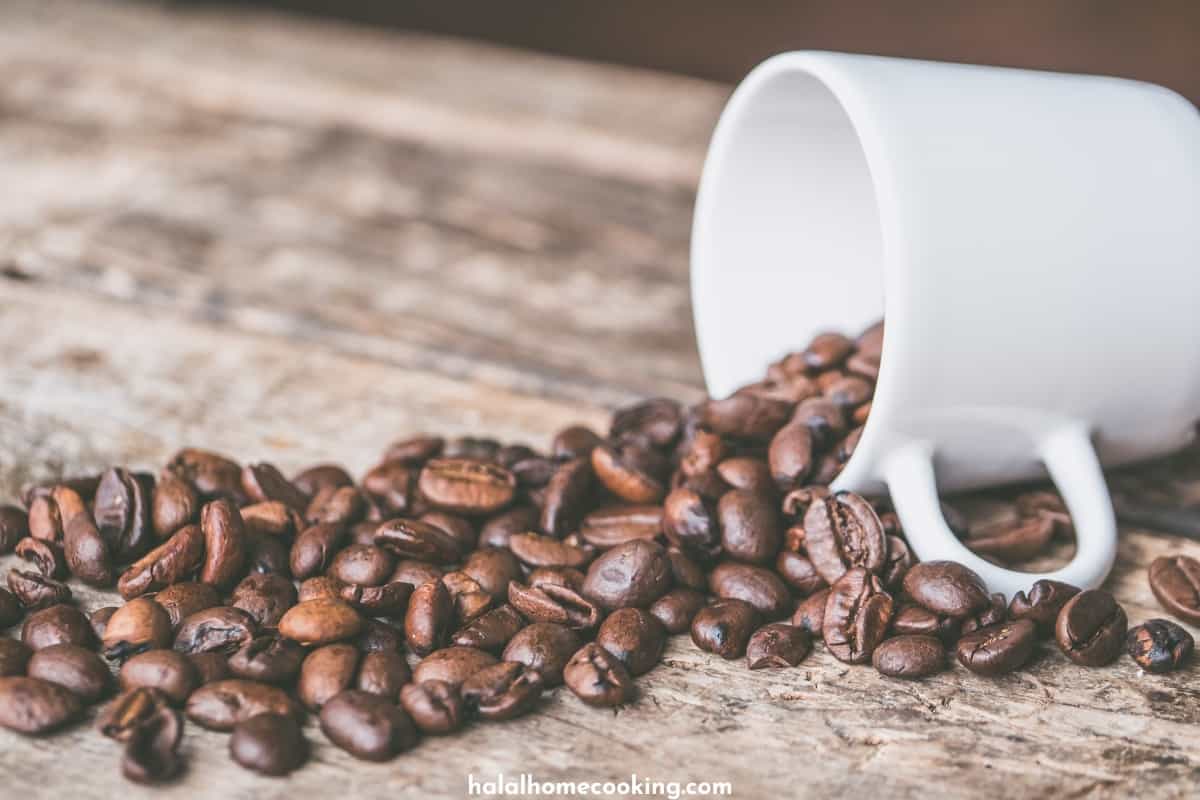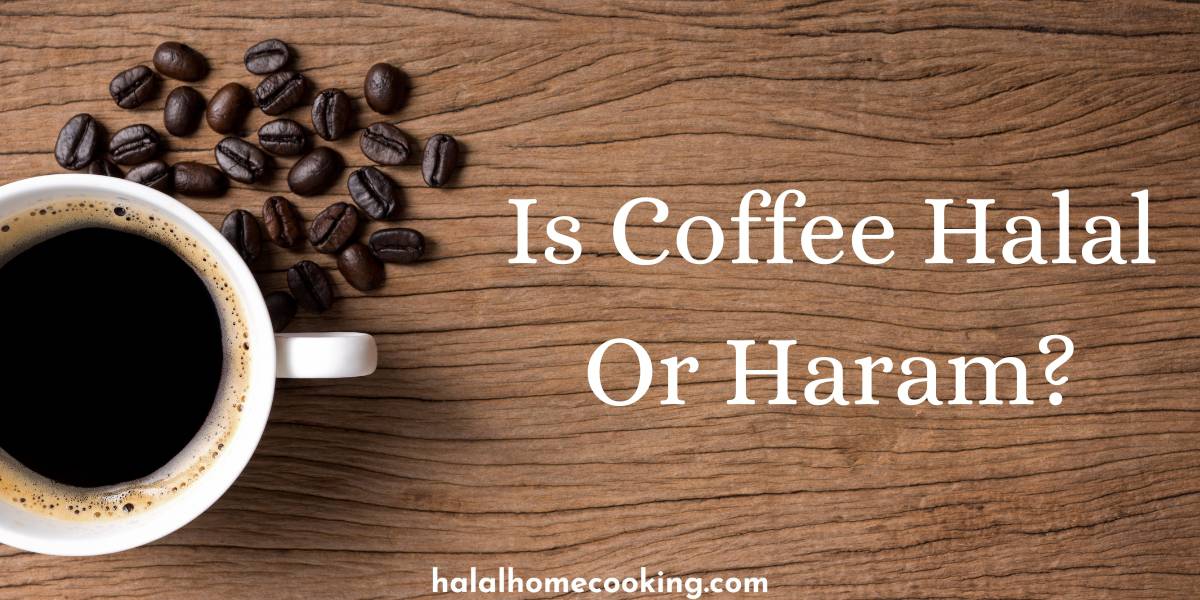In the world of food and drink, there are often debates about what is halal (permissible) and what is haram (forbidden) according to Islamic law. One such topic that has sparked discussions among Muslims around the globe is the question of whether coffee falls into the category of halal or haram.
Coffee, derived from the coffee bean, has become a beloved beverage for millions of people across different cultures. It’s enjoyed not just for its taste but also as an energy booster thanks to its caffeine content. The key factor in determining whether coffee is halal or haram lies in assessing if caffeine can be considered an intoxicating substance.
Islamic dietary laws strictly prohibit consuming any form of alcohol as it leads to drunkenness and impairs one’s, mental faculties. As such, alcoholic beverages are deemed haram without exception. However, when it comes to substances like caffeine found in coffee or energy drinks, scholars have debated whether they should be placed under similar scrutiny.
According to many Islamic scholars, caffeine does not cause intoxication nor does it impair cognitive functions to an extent that deems it forbidden by Islamic teachings. Therefore, they argue that drinking coffee – as long as no additional haram ingredients are added – should generally be considered halal.
It’s important to note that some individuals might avoid caffeinated beverages altogether due to personal preferences or health reasons. While these choices have merit within an individual context, they do not necessarily reflect the overall halal status of beverages containing caffeine.
In certain cases where haram ingredients like alcohol or animal products are used during processing or brewing methods align with prohibited practices – such as those involving poor working conditions – then consuming certain types of coffee may indeed fall under the category of being impermissible based on specific circumstances.
One popular example often cited is luwak coffee, a highly-prized variety made from the beans of coffee cherries consumed and excreted by civet cats. While these beans are meticulously collected and thoroughly cleaned before being roasted, some individuals argue that it still involves indirect consumption of an animal product, leading them to consider luwak coffee as inedible for Muslims.
To sum up, while the majority opinion among scholars suggests that plain coffee without haram ingredients is halal in general, particular caution should be exercised when considering speciality or flavoured coffee drinks. It is essential to scrutinize their production methods and the source of any additives or additional ingredients used to ensure adherence to Islamic dietary laws.
Ultimately, like many other aspects of life, this issue requires personal examination and reliance on sound advice from trusted Muslim scholars who possess knowledge in matters related to faith and food. The aim should always be seeking blessings through consuming permissible food and drink while avoiding harm by abstaining from forbidden things – whether they are within a cup of caffeine-laden elixir or any other aspect of life’s choices.

Is Coffee Halal in Sunni?
Coffee is considered halal in Sunni Islam. The consensus among Sunni scholars is that coffee, being a natural and non-intoxicating beverage, does not contain any prohibited ingredients or qualities. Therefore, it can be consumed by Muslims without any issues. However, it is important to note that some scholars may have differing opinions on specific aspects of coffee consumption, such as the permissibility of flavoured coffees or additives. It is always advisable to consult with knowledgeable scholars or trusted sources for further guidance on matters of dietary restrictions in Islam.
Is Coffee Halal in Shia?
In Shia Islamic doctrine, drinking coffee is considered halal (permissible) as long as it does not contain any Haram (forbidden) ingredients. Coffee is made from roasted coffee beans, which are natural and not intoxicating. However, it is important to note that certain flavoured coffees may contain alcohol-based flavourings or extracts, which could make them Haram. Thus, Shia Muslims should verify the ingredients used in flavoured coffees to ensure they are Halal. Additionally, moderate consumption of coffee is advised, as excessive intake can have adverse effects on health.
Is Coffee in Hanafi?
Coffee is considered permissible (halal) in the Hanafi school of thought. This is because it does not fall under the category of intoxicating substances, which are strictly prohibited in Islam. The Hanafi scholars argue that coffee does not alter the mind or impair one’s judgment, therefore it is not considered an intoxicant. However, it is important to note that excessive consumption of coffee or any other stimulant can be discouraged due to its potential negative health effects.
Some FAQs about various types and brands of coffee being halal or haram –
Is Coffee Bean Halal?
It depends on the ingredients and how the coffee is prepared. Generally, plain coffee without any additives or alcohol is considered halal. However, flavoured coffees or those made with non-halal ingredients may be haram.
Is Bacha Coffee Halal?
Yes, Bacha Coffee is halal as it adheres to Islamic dietary laws.
Is Flash Coffee Halal?
Flash Coffee does not have a specific halal certification. It’s best to contact the company directly to inquire about their ingredients and practices.
Is Zus Coffee Halal?
Zus Coffee does not have a specific halal certification. It’s recommended to reach out to the company for more information regarding their products’ adherence to Islamic dietary guidelines.
Is Luwak Coffee Halal?
Traditional Luwak coffee production involves feeding wild civets with ripe coffee cherries, which are then collected from their faeces for further processing. Since this production method involves an animal-handling process that contradicts Islamic principles of cleanliness and ethical treatment of animals, Luwak coffee is generally considered haram (not permissible) in Islam.
Is Costa Coffee Halal?
Some Costa cafes may offer certified halal products like meat sandwiches; however, it’s important to check with your local Costa branch or refer to their official website for accurate information on specific items.
Is Starbucks Coffee Halal?
Yes, Starbucks Coffee has been Halal since the beginning.
Is Coffee Liqueur Halal?
All Coffee Liqueurs are Haram as they have alcohol content.
Is Maxim Coffee Halal?
Maxim Coffee does not hold a specific halal certification. It’s advisable to reach out to the company directly for detailed information about their products and production processes.
Is Coffee Mate Halal?
Some variants of Coffee Mate may have halal certification, while others may not. It is important to check the packaging or contact the manufacturer for accurate information regarding specific flavours or varieties.
Is French Vanilla Coffee Halal?
To determine if French Vanilla coffee is halal, you should check the ingredients list and ensure that all components comply with Islamic dietary laws. Additionally, it’s recommended to seek guidance from your local Islamic authority if uncertain.
Is Third Wave Coffee Halal?
Answer yes- Since Third Wave coffee primarily focuses on high-quality beans and brewing methods rather than additives or non-halal ingredients, it can generally be considered halal permitted.
Is Old Town White Coffee Halal?
Yes, Old Town White Coffee is halal-certified by JAKIM (Department of Islamic Development Malaysia) and offers a range of halal-certified products.
Is Chang Jiang White Coffee Halal?
It’s best to check the ingredients and production processes of Chang Jiang White Coffee to determine if it is halal. Consulting with your local Islamic authority can provide more accurate information.

